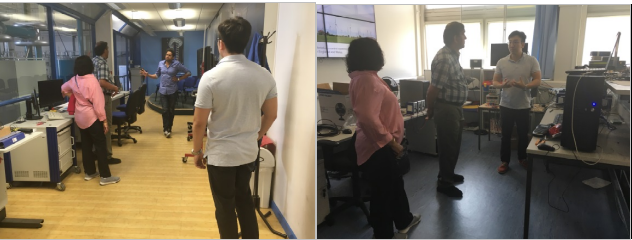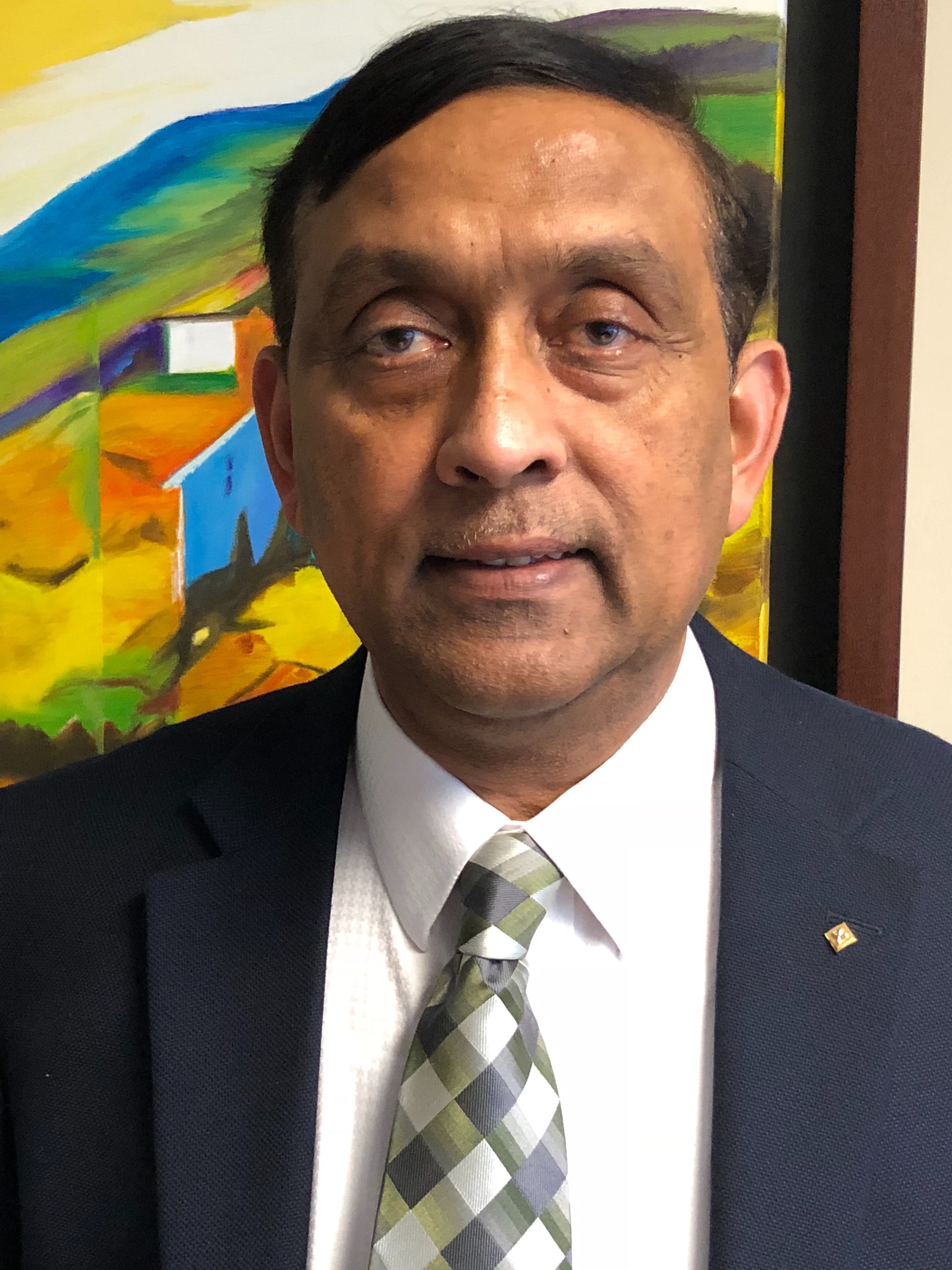Type: IEEE PES Distinguished Lecture Series
Title: Hybrid Renewable Energy Standalone Systems
Speaker: Professor Ambrish Chandra
Date: 26th June 2018
Time: 10:00 – 12:00
Location: C9, Sackville Street Building, Sackville Street, Manchester M1 3BU
We were delighted to host Professor Ambrish Chandra (and his wife, Professor Anjali Agarwal) on 26th June 2018.
Professor Chandra delivered his IEEE PES distinguished lecture, entitled ‘Hybrid Renewable Energy Standalone Systems’ to an attendance of nearly 30 postgraduates who were rapt in attention. Prof Chandra visited from IEEE Region 7 (Canada), and his fresh look at the issues in his presentation were extremely interesting to a mostly European / Asian audience.
A good presentation can always be identified from the question & answer session, and this one was particularly lively with many insightful questions asked. Prof Chandra took the time to answer each one in detail, starting from first principles. The Q&A session is captured in the podcast which you can find on this page too!
Before the lecture, Profs Chandra and Anjali were treated to a tour of the laboratory facilities in Ferranti building (see pictures below), starting in the National Grid high voltage laboratory, followed by a demonstration in the RTDS lab, given by our Vice-Chair Mingyu Han.

The IEEE PES Student Branch Chapter at UoM is very grateful to Prof Chandra for his visit and we hope to host him again soon!
If you would like to join us for more events like these, please check out our Upcoming Events Page.
For PDF slides: Click Here
For Podcast: Click Here
LECTURE DETAILS:
Several isolated areas in the world currently use only diesel generators (DGs) to serve their requirements of electrical energy. However, the use of DGs has many drawbacks: (1) high cost of electricity, (2) air and noise pollution, (3) Loss in fuel efficiency and maintenance cost. To remedy those problems it is better to generate power from a costeffective, environmental friendly renewable energy sources (RESs) such as wind, solar, hydro, biomass, etc. RESs are clean and almost available all over the planet but are intermittent in nature, especially wind and solar power generations. This makes their integration to micro-grid with DG difficult, especially if the local grid is not connected to the main grid. Hybrid standalone system consists of many elements such as photovoltaic panels, wind turbines, DG, energy storage system, AC and DC loads, dump load etc. Most of these elements are connected to the AC or DC bus via power electronic devices. In this presentation many possible hybrid renewable energy standalone systems will be discussed. Control of some of the systems will be discussed in detail.
SPEAKER’S BIOGRAPHY:

Professor Ambrish Chandra
Ambrish Chandra FIEEE is a full professor of Electrical Engineering at École de technologie supérieure (ÉTS), Montréal since 1999. His educational background includes B.E. degree from the University of Roorkee (presently IITR), India, M. Tech. from IIT Delhi, and Ph.D. from University of Calgary, in 1977, 1980, and 1987, respectively. Before joining as an Associate Professor at ÉTS in 1994, he worked as a faculty at IITR. From 2012-15, he was director of multidisciplinary graduate program on Renewable Energy and Energy Efficiency at ÉTS.
The primary focus of his work is related to the advancement of new theory & control algorithms for power electronic converters for power quality improvement in distribution systems & integration of renewable energy sources. He has published more than 300 research articles in these areas. The key differentiator of his work is in its simplicity and practicality of new solutions and has had significant impact, which is now extensively used in the industry. He was instrumental in writing six review articles on power quality, which have become de-facto standards world-wide with total Google citations more than 11400, h-index 45, i10-index 130. He is coauthor of John Wiley book ‘Power Quality – Problems and Mitigation Techniques’.
Dr. Chandra is Fellow of many organizations, such as, FIEEE, FCAE, FEIC, FIET (UK), FIE (India), FIETE (India) and registered as a Professional Engineer in Quebec. He is IEEE PES/IAS Distinguished Lecturer and has given lectures in Singapore, Indonesia, Malaysia, China, in Beijing, Shanghai, Nanjing, and Xi’an, University of Toronto, many cities in India, Morocco, Algeria, Tunisia, and Egypt and keynote speeches in many international conferences. He is Chair of subcommittee on ‘Power Quality’ of IEEE IES. He is the Guest Editor for special issue of journal Energies on ‘Power Quality in Microgrids Based on Distributed Generators’. He received IEEE Montréal Best Technical Chapter Award – for PES in 2012, 2014, 2017, ‘Outstanding Contribution’ as Chair of IEEE Montréal Section’s PES Chapter, 2010. He is the recipient of highest Canadian award on electrical power engineering 2018 ‘IEEE Canada P. Ziogas Electric Power Award’.